Resume Examples
by Job and Industry
Accounting Resume Examples
51Administrative Resume Examples
99+Billing & Collections Resume Examples
Business Operations Resume Examples
53Childcare Resume Examples
Computer Software Resume Examples
Construction Resume Examples
43Cosmetology Resume Examples
Culinary Resume Examples
44Customer Service Resume Examples
72Data Systems Administration Resume Examples
36Driving Resume Examples
33Education & Teaching Resume Examples
43Finance Resume Examples
35Fitness & Nutrition Resume Examples
Food Service Resume Examples
99Healthcare Support Resume Examples
36Human Resources Resume Examples
36Information Technology Resume Examples
25Janitorial Resume Examples
27Marketing Resume Examples
16Mechanical Engineering Resume Examples
Medical Resume Examples
99+Nursing Resume Examples
99+Production Resume Examples
26Retail Resume Examples
73Sales Resume Examples
49Safety & Security Resume Examples
Additional Resume Examples
Resume Format Examples
When creating your resume, choosing the right resume format is essential for highlighting your strengths effectively.
Functional
Puts the focus on the skills section
Best for
First-time job seekers lacking relevant experience
Combination
Skills and work history share the spotlight
Best for
Job seekers aiming for a promotion or career-changers
Chronological
Emphasizes your career history milestones
Best for
Candidates with a steady career progression in their field
How to Tailor Your Resume to the Job
Always customize our resume examples before applying! Tailor them with your unique skills and metrics and make a strong impression with these tips:
- Scan the job ad for resume keywords (required skills and qualifications) and add the ones that best match your experience to your resume.
- Use numbers to prove impact. Link your resume achievements directly to what the job needs, like boosting sales by 10%.
- Customize your resume profile to reflect company values. If they value innovation, highlight your latest ideas and projects.
- Edit your skills section for each application by highlighting six to eight of your most relevant skills for the job.
- Include a punchy resume headline featuring your most in-demand qualifications to quickly grab the hiring manager’s attention.
6 Benefits of Using Professional Resume Examples
Professional resume examples save you time and stress by showing you exactly how to craft a winning resume for any industry or experience level.
- Discover how professionals phrase their resume content, so you don’t struggle with writer’s block.
- Use real examples to see what to write, not just where to place it, unlike with generic templates.
- Save time by replacing skills and adding a few unique achievements instead of writing a resume from scratch.
- Get industry-specific ideas that highlight the exact skills and sections recruiters want for your target job.
- Optimize your resume with ATS-friendly examples that help you pass scanners and reach real recruiters faster.
- Learn what modern resumes include, what to skip, and how to stay current with today’s resume trends.
Frequently Asked Questions
Can I use a resume example even if I have little or no experience?
Yes, you should especially use a resume example if you have little or no experience. They provide a ready-made structure that you can customize with your own details and relevant keywords. For an entry-level sample you can use, see this page’s “Resume Examples by Experience Level” section. For more guidance, check out our article on: How to Write a Resume With No Experience.
How long should my resume be?
Your resume length should generally be one to two pages long to fit all your relevant information and be concise enough for recruiters to read quickly. You should include one page for every 10 years of experience. To keep it concise, omit any roles that are older than 15 years or aren’t directly relevant to the role.
What should a resume look like in 2025?
In 2026, a resume should look clean and polished—visually appealing yet simple enough to pass ATS. Use an easy-to-read font, bullet points, and 1-inch margins. Include and tailor all key sections to the job application: contact info, resume profile, work experience, skills, and education. For a full guide, see our article on what a resume should look like.
How often should I update my resume?
You should update your resume every six months to include your most current achievements. Updating your resume regularly allows you to be prepared if you suddenly find yourself looking for a job. Of course, always update your resume whenever you apply for a new job.
What’s the difference between a CV and a resume?
The difference between a CV and a resume is that a CV lists your full academic and professional history, while a resume is a shorter, tailored document—usually one to two pages—focused on a specific job.
Do you have creative resume examples?
Yes, we have creative resume examples for many creative roles like graphic designer, makeup artist, writer, and more. You can search for a specific creative job on this page’s search bar or go to our creative resume templates page to browse the best resume layouts for creative fields.
How to write a resume for creative jobs?
Writing a resume for creative jobs requires a visually appealing yet professional design. Highlight creative skills, relevant projects, and link to your portfolio. Focus on unique accomplishments and tailor your resume to the creative role. Incorporate industry-specific keywords and showcase your versatility through varied experiences and creative problem-solving skills.
Do I need to list every job I’ve had on my resume?
No, you don’t need to list every job you’ve ever had in your resume. Prioritize jobs that showcase your relevant experience for the position you’re applying for. If you’ve had several jobs or held short-term roles, you can omit those that don’t add value to your current application.
Should I include references on my resume?
No, you shouldn’t include references in your resume unless the employer explicitly requests it. Including references on your resume is an outdated practice that wastes space. Use your resume for the most important, job-relevant details, and instead provide references in a separate document if you wish to do so.
How can I make my resume compliant with applicant tracking systems?
Make your resume compliant with applicant tracking systems (ATS) by ensuring proper formatting, including keywords from the job ad, and omitting complex designs, photos, and graphics. If you don’t optimize your resume for the ATS, you can risk getting a low ATS score and hurt your chances of being considered for the job. Ensure your resume can bypass the ATS by uploading your document to our free ATS Resume Checker.
Should I include a cover letter with my resume?
Yes, you should write a cover letter to include with your resume to add more valuable information to your job application. While a resume should consist of a summary of your most job-relevant accomplishments, a cover letter can improve your job chances by delving into your interest in the company, expanding on your achievements, and communicating who you are as an individual and professional.
Do you have cover letter examples, too?
Yes, we have hundreds of cover letter examples categorized by job or industry. They are just as easy to customize as our resume examples, making for a quick and seamless job application process. You can also get a personalized cover letter created just for you in mere minutes by using our Cover Letter Generator.
Ready to Land the Job?
Join 28M+ others who’ve built a resume that works.
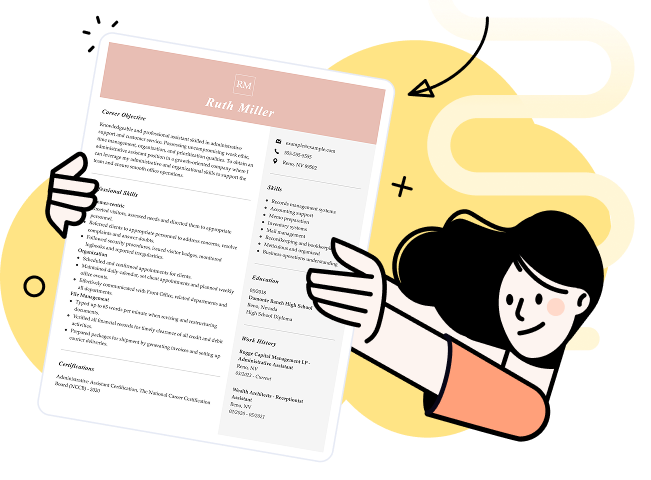

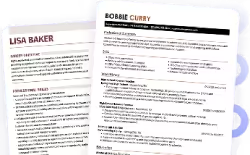
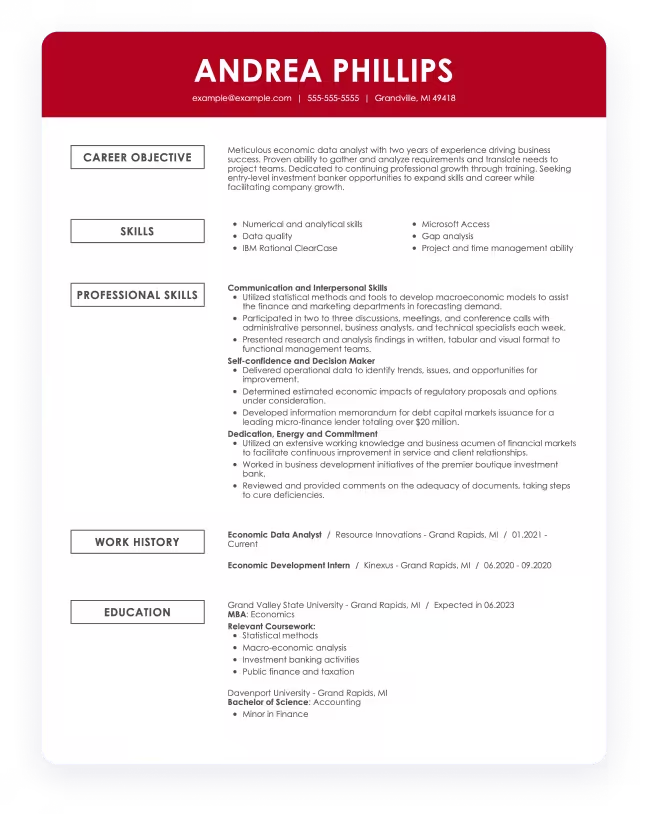
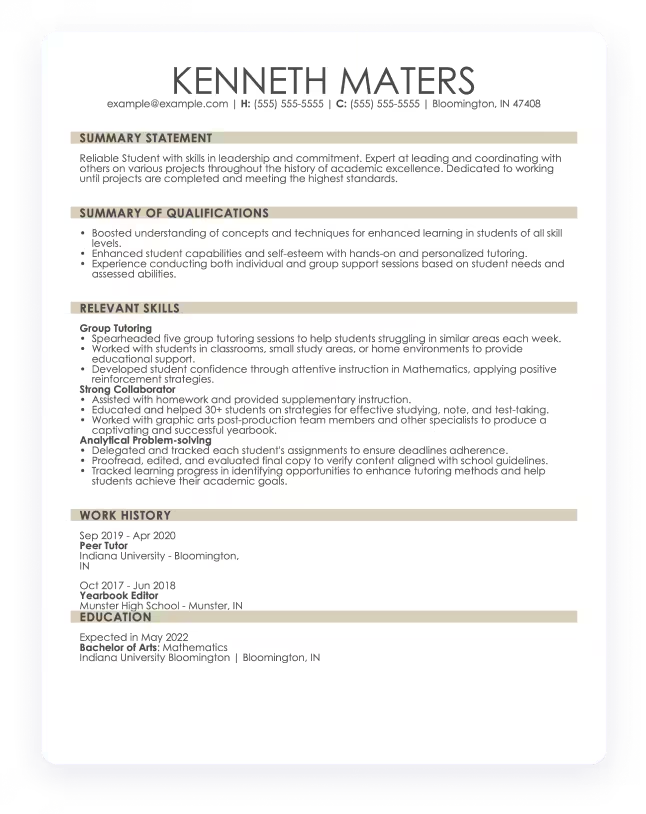
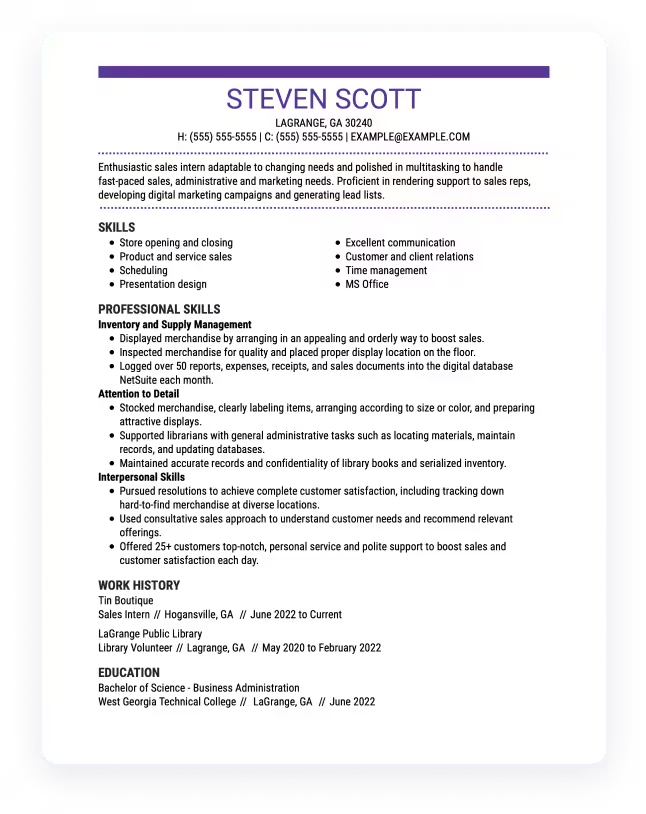
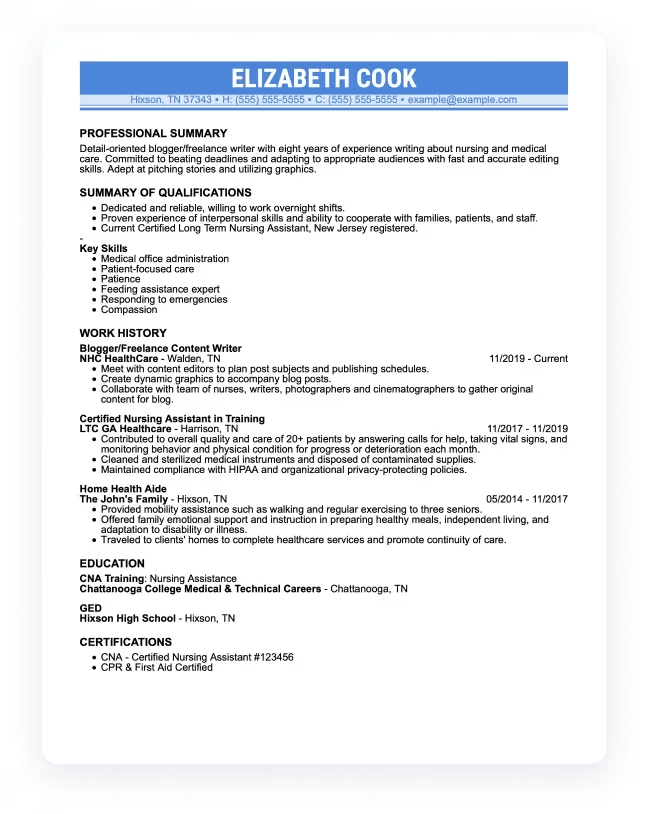
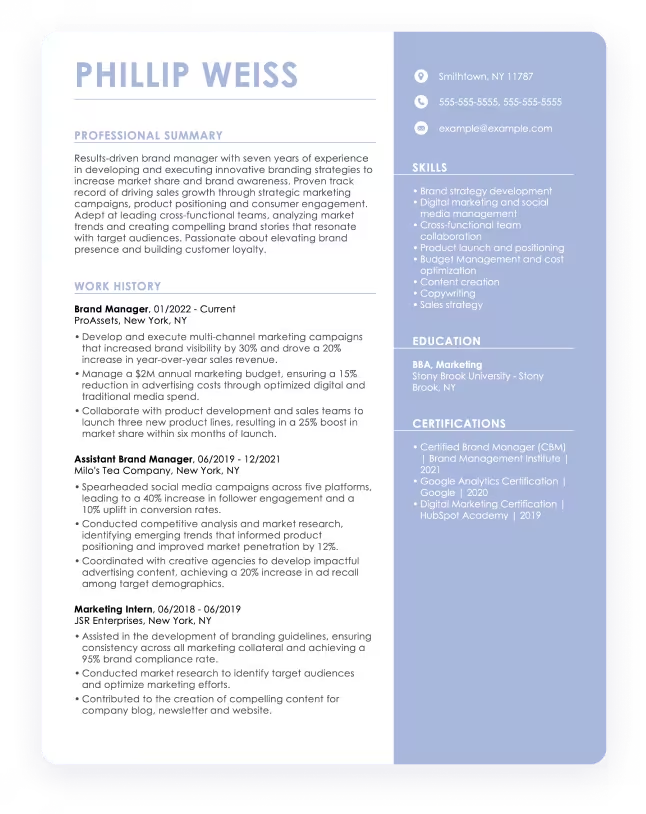
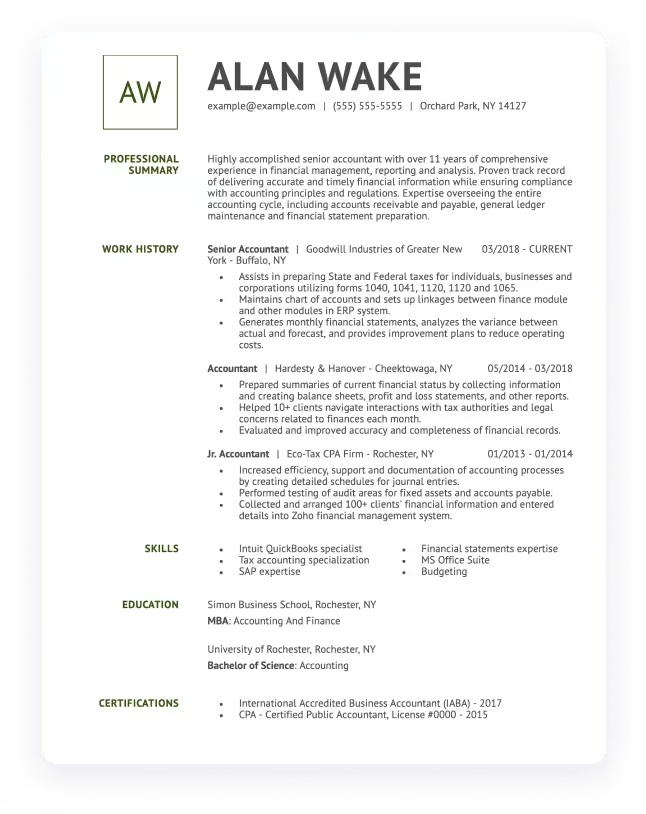





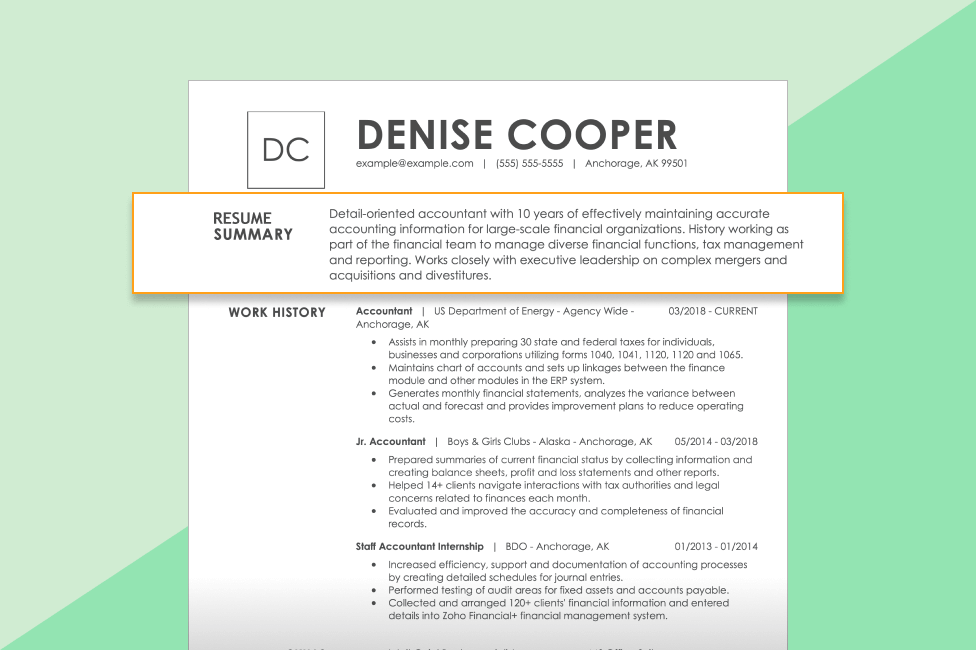





Social Services Resume Examples
23Case Manager
Use This ExampleView all social services resumes